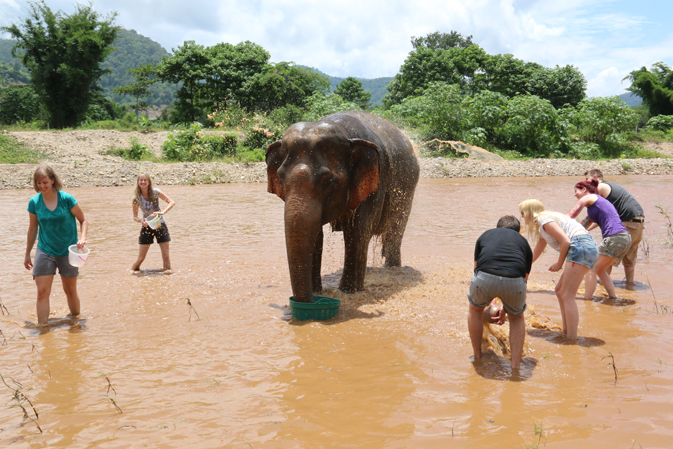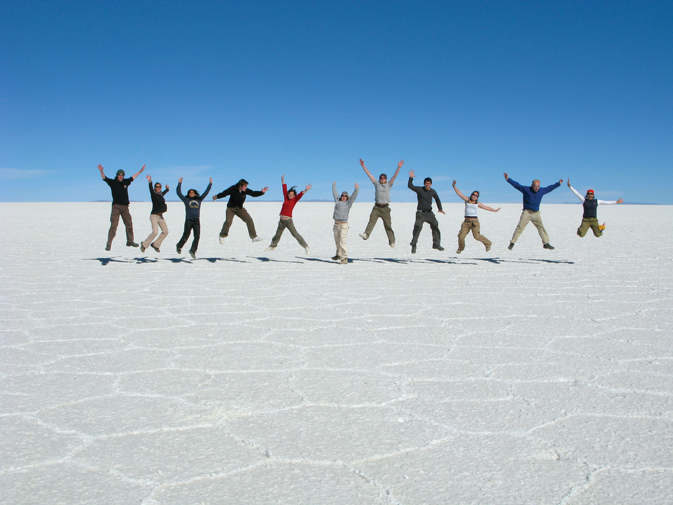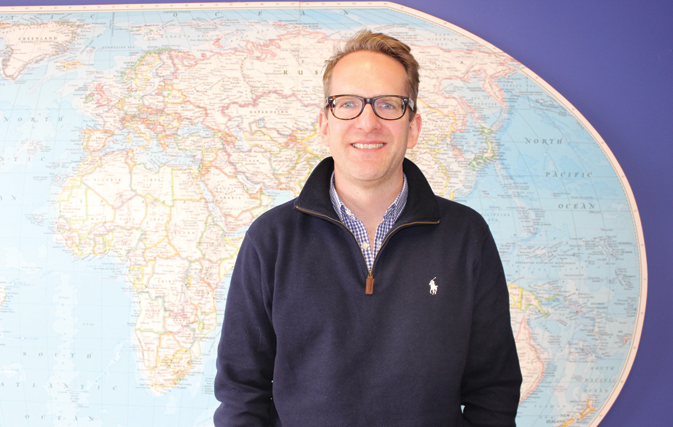This article originally ran in the April 13th, 2017 issue of Travelweek. To receive Travelweek to your agency or office for free, subscribe here.
TORONTO — James Thornton looks like any guy you’d see walking down the street. Average height, medium build, young and easygoing, all the signs of a fresh-faced Millennial intent on making his mark in the world. But upon closer inspection, you notice his laidback confidence, his unwavering eye contact and the genuine way he says your name to let you know that what you’re saying matters, a skill that instantly gives away the fact that this Millennial is in no way average.
What he is, of course, is Intrepid Group’s new CEO and, more remarkably, the company’s first non-founding CEO. This is an especially notable accomplishment considering the fact that Thornton is just 35 years old, something he says works in his favour at a travel company known for catering to young travellers.
“One of the motivations for Darrel and Manch (co-founders Darrell Wade and Geoff Manchester) to make me CEO of the Group is that our average traveller age is 37, and the average age of our staff is 36. So at 35, I’m pretty well placed to be able to relate to both groups,” he says. “Both Darrel and Manch recognize that businesses that focus on just tradition are ones that probably aren’t going to be successful in today’s modern world. We need to continue to evolve because standing still will probably kill us as a business. So yes, having a young CEO who can relate to its staff and travellers is a good thing.”
Despite his age, Thornton brings a lifetime of experience to his new role seeing how he’s been with Intrepid Group for 12 years. He was appointed the first non-founding managing director of Intrepid Travel, the brand, back in 2012, and then Managing Director of the newly formed Intrepid Group the following year. And although he may not be the company’s youngest CEO in history (Wade and Manchester started the company in their late 20s in 1989), you can say that he’s the youngest with the most responsibility.
“We carry over 300,000 passengers and we’ve got 1,600 staff and 27 offices. There’s definitely a big responsibility to make sure we continue to grow the business,” he says.

Travelers at the Elephant Nature Park in Thailand. Credit: Intrepid Group.
Thornton, who as MD of Intrepid Group ran its global leadership team, played a key role in the company’s growth immediately following the breakup with TUI Group nearly two years ago. After Wade and Manchester took back full ownership of the brand, Intrepid Group – which comprises Intrepid Travel, Geckos Adventures, Peregrine Adventures, Adventure Tours Australia, Urban Adventures, 19 destination management companies and not-for-profit The Intrepid Foundation – saw a 15% increase in sales, moved to new offices in Melbourne and London, paid out company-wide bonuses and raised more than AUD$1 million for charities.
Thornton credits this growth to the fact that the company no longer had to “concentrate so much on month-by-month, quarter-by-quarter results” and “ask permission from anyone else” to make decisions. But he also thinks travel agents had a lot to do with it.
“TUI was very much a direct-to-consumer model,” he says. “Historically, Intrepid has always had very strong industry support and a travel agent base. Being able to split from TUI allowed us to work much more closely with key travel agent partners and ink some stronger deals, which have been important in expanding our growth profile.”
So where does Intrepid go from here? History has shown that once on top, the only way to go is down, especially when extenuating circumstances like global terror attacks and a low loonie impact global tourism, right?
“Definitely not,” he says, adding that the company tends to actually do better when a country’s dollar weakens, with travellers looking for more value-based products (the average sale price of an Intrepid 10-day trip ranges from $1,500 to $1,900). And though certain destinations like Turkey, France and Egypt have been challenging in recent months, Thornton says that places like Morocco, Central America and the Galapagos have all performed really well, offsetting the regions that are struggling.
And what about the so-called ‘Trump Slump’? Thornton isn’t too worried, despite seeing a 30% dip in sales to the U.S. immediately following President Trump’s first travel ban in January. Noting that there may be other factors as to why U.S. tourism is down (the strong dollar, for example), he thinks Trump’s impact on travel is a “short-term concern” and that although there may be a “dampening of enthusiasm”, it won’t stop people from travelling to the States overall.
“This isn’t necessarily unique to the U.S. Remember, we operate trips to 100 countries, and a lot of the places we go to have political instability – the U.S. just happens to be the topical conversation,” he notes. “When an administration changes, you often find there’s a challenge with tourism for a short period of time until things settle down. So we’re watching carefully and hoping for the best.”

Bolivia salt flats. Credit: Intrepid Group.
Optimism is running high company wide this year, largely due to its newly expanded range of adventure cruising, which was first launched late last year. Featuring a maximum of just 50 passengers, first departures to Croatia go out in June and July, with newly added Greece, Spain, Portugal, Iceland and Cuba setting sail in 2018. And since Intrepid is all about adventure, Thornton says the “adventure component” of its cruise program is on the ground.
“Often when you go on a big cruise ship it’s all about the boat. But with our small local boats, you eat off the boat and experience the town and city you’re in, as opposed to doing everything onboard. There won’t be any jazz singers on our boats, that’s for sure,” he laughs.
Of course, this ‘small-ship, off-shore’ approach is in line with Intrepid’s core purpose, which is to change the way people see the world. According to Thornton, this requires a two-pronged approach: growing the market for “sustainable experience-rich travel”, and operating a business that has “a purpose beyond profit.” One only needs to read about Intrepid’s recent initiatives – hiring a Responsible Travel Manager in 2000, banning elephant rides in 2014, raising $1 million for Nepal in 2015-16 – to know that the company is genuine in its efforts to improve the world we live in.
“Good businesses have the opportunity to make a difference to some of the world’s biggest challenges, if done right, like bio-diversity, climate change, and the migrant or refugee crisis,” he says. “That’s why we need a platform in size and scale to be able to act on these matters. The more we grow, the more we can act in the purpose space and do more substantial things.”
And with the intrepid new CEO taking over the reins, we have no doubt that the company will do just that.

